|
Image courtesy Cinema Guild Pictures.
UPDATE: The Grand Illusion has decided to hold this over until June 4th! It's still viewable! In 2009, a new Iranian film was making the rounds at the festivals. Most Americans at the time didn't know who Asghar Farhadi, the director, was, and I don't just mean the ordinary moviegoing populace. Even the stuffy film literati of that year wouldn't have recognized the name. Farhadi had only made three previous features, one of which never made it past a few small European festivals– and I don't mean the ones we hear about, but tiny affairs in Denmark and the Czech Republic– while the other two films had blink-and-you'll-miss-it releases in France and Greece. If you were inside Iran, the government didn't want you knowing about the guy; if you were outside, well, you'd probably never heard of him anyway. About Elly,* however, was making larger waves. Farhadi's latest movie starred well-known beauty Golshifteh Farahani, among other highly reputed Iranian actors, and came wreathed in Audience and Director awards from Iran's own Fajr Film Festival. That wasn't enough to attract the interest of the international film scene, though. People in Paris and LA don't pay attention to Fajr Film Festival. It wasn't until the movie debuted to absolute raves at Berlin, where it picked up the prestigious Silver Bear, that the international community took notice. After winning Best Narrative Feature at Tribeca and racking up awards at Viennale, Chicago and elsewhere, Regent Entertainment Group acquired it for a future platform release stateside. Things were in motion for US audiences to finally get a glimpse of what the raves were all about. Terrific. That was in 2009. In early 2011, Regent got slapped with a $90 million lawsuit which effectively threw 100 of their titles, both library and unreleased acquisitions, into limbo. The lawsuit, placed by Bank of America and Merrill Lynch, was the first step in what ultimately ended in Regent, as it was set up at the time, going out of business. About Elly continued to gather dust, sitting on a shelf on Wilshire and seen by no one. Meanwhile, Asghar Farhadi kept working. In 2011, his A Separation** opened to worldwide acclaim, with an absurd 113 nominations and wins at various festivals, becoming the first Iranian film to win an Oscar (Best Foreign Film, also nominated for Original Screenplay) and placing director Farhadi and Iranian film in general on the map in a way it had never been before. Everyone (except the Iranian government, which forbade Farhadi to celebrate his Oscar win upon returning to his native country) loved A Separation, which managed the unique feat of being a domestic drama that felt like a thriller. Something about the way he carefully disseminated information to the viewer throughout the movie kept viewers on the edge of their seats, and it all felt so relatable and real, thanks in large part to killer performances and a lack of music or other sentiment-inducing tropes. Two years later he would direct The Past,*** starring actor Berenice Bejo (fresh from The Artist) in a searing lead role. She won Best Actress at Cannes, arguably a bigger deal internationally than the Oscars. Both films are about divorces, but they approach that thorny topic from very different angles. This one was shot in France and filmed in the French language, doubtless easier for Farhadi than wrangling with an uncooperative, anti-art bureaucracy back home. The Past also received rapturous praise, though it lacked the surprise factor of A Separation's splash-landing. All this was fine, but it made everyone ask, what about that other movie he made back in 2009? Starring who? Leo DiCaprio's character's girlfriend in Body of Lies?**** What was it even called? And why, in this day and age, was a movie that's less than five years old and directed by the most famous Iranian director in the world completely unavailable? All there was to read about it were the raves from Berlin and Tribeca, and pictures of Farhadi holding the Silver Bear. Everybody was curious about About Elly, but there was no way to see it. Which brings us to 2014. Cinema Guild made headlines when it acquired About Elly for North American distribution in November of that year, wresting it back to life from a six-year coma. A premiere was scheduled at the New York Film Forum for April of 2015, followed by a limited release in May. Finally, finally, US audiences would get a third Asghar Farhadi film to salivate over. They were getting his work out of order, but hey, who cares. The reviews promised sliced bread, and the director's recent track record seemed to indicate the same. Sooooo. How's About Elly? Let me just say two things. I'll try to be brief. One is that About Elly really is sliced bread. I sat in the front row, gobsmacked and unwilling to move as the end credits rolled. I see a lot of great films, but only a select few– and this is no criticism of the many others– only a select few pictures pierce through all the analysis of form and content and strike me on a deeper level, the level of real and felt emotions, strong emotions that burn and heal and leave me a more thoughtful person. Says Farhadi, "Classical tragedy was the war between good and evil. We wanted evil to be defeated and good to be victorious. But the battle in modern tragedy is between good and good. And no matter which side wins, we'll still be heartbroken." About Elly is not about politics, or plots, or monsters, or explosions, or even resolutions, but something much more complex: people. Somehow it's all the more relatable for taking place in a very different country than our own. What you end up focusing on are the similarities– the universal human tendencies towards laughter, sadness, love, belonging… it's all thrown into high relief, and the everyday realism allows points to be made (I'm thinking of some indictments towards patriarchal attitudes in Iranian society) with more effectiveness. The second thing is that the less you know about the film's story going in, the more effective it will be. If you must know an inkling of the setup, it starts off being about a group of college friends taking a short vacation at a villa, and then expands its emotional scope when one of the friends mysteriously disappears. It's tense. Like A Separation and The Past, it's a drama but it's structured like a thriller. This gives you the relatable relevance of drama alongside the tight, edge-of-your-seat fascination of a thriller framework– amazingly, without apparent compromise to either approach. Farhadi is one of the best artists working today. It feels good to be in the capable hands of a master. About Elly plays at The Grand Illusion– and nowhere else in Seattle– only until June 4th. Go now. You won't regret it. -- I'm compelled to share with you an excerpt of Farhadi's 2012 Oscar acceptance speech, which expresses a thought of mine better than I ever could: "At this time many Iranians all over the world are watching us, and I imagine them to be very happy. They are happy not just because of an important award, or a film, or a filmmaker, but, because at a time of talk of war, intimidation, and aggressions exchanged between politicians, the name of their country, Iran, is spoken here through her glorious culture; a rich and ancient culture that has been hidden under the heavy dust of politics. I proudly offer this award to the people of my country; the people who respect all cultures and civilizations and despise hostility and resentment." ****Actress Golshifteh Farahani's supporting role in Body of Lies is more significant than most people realize, in that it was the first appearance of an Iranian actor in a Hollywood production since the 1979 revolution. Due to a couple of scenes where Farahani doesn't wear a hijab, Iran confiscated her passport and ultimately banned her from acting and returning to her country. She now resides in Paris. *Trailer for About Elly. If you must– reviews. **Trailer for A Separation. ***Trailer for Le Passe (The Past).
0 Comments
A figure slips on through the back door at outbound 12th and Jackson, against the rules. Maybe he's doing it in loving memory of the Ride Free Area. This used to irritate me, and sometimes still does.* But why? I think it's less about the rules than simply my desire to greet everyone.
I see his eyes furtively check to see if I've noticed him. I lock eyes with his in the mirror, giving him a big smile– no irony, no malice, just a regular jug of a grin. He pulls his shades down to more clearly see me, confused. I give him a friendly wave. This prompts him to walk up to the front. "Heeey!" "My bad, my bad," he says. "I was sad you din't wanna come say hi to me!" I exclaimed enthusiastically, in mock grief. "My bad, dude, no way!" he says again, laughing, showing me the transfer he had all along. "I'm just messin' with you!" Fistpound. "Thanks for comin' up. How you been?" We catch up for a few before he returns to his seat, staking it out before the crowds can take it over. He looks around, out the window, smiling to himself. It's a good day. -- *Operators: I'm in no position to give advice, but I'd like to suggest something that works for me. If one feels compelled to say something after a passenger boards through the back, making demands that they come to the front opens up the possibility for conflict, as well as the possibility for them to say no. Instead, if one says something like, "next time try and use the front door," or "next time come on up to the front, don't be shy," it eliminates the demand element. You're not actually asking them to do anything. They can't say no. Of course, better than all of this is to just leave it alone. Or sometimes I'll simply say, "welcome aboard, everybody!" "How you doin'?" I ask a man stepping in.
"You know how it goes," he replied. "Some days chicken, some days Phillies." He didn't smile til the end of it, which made it all the funnier. We laugh. "You're hired," a woman said, watching me greet and respond to the various faces as we climb up Rainier Avenue. "Jesus Christ, somebody who actually likes their job!" "I can't help myself!" "We're movin' out," I say into the microphone as we pull out, letting people know it's a good idea to hold on. "Yeeeeeah," she says enthusiastically. "Lez get this party started!" "I already started a party," says another woman, dancing a little. "But I need jo help!" "You got it, girlfriend!" the first one exclaims, as they start wiggling along together, a new form of seated dancing, the imaginary rhythm in their heads jiving out into something real. We arrive twenty minutes late at the food bank on Rainer. It's just closed. A streetwise couple hoping to go there steps off, dejected but uncomplaining. If you're two minutes late in an affluent neighborhood, you'll get an earful. People don't really do that out here; bigger fish to fry, perhaps. I usually don't apologize for being late, as it's not something I can control, but I do to them given the circumstances.
"Sorry we got here late, you guys." "It's cool. You're just doin' your job." They wander out of the bus as if in a daze. I would too, if my one source of food for the day was taken away from me. Where does one go now? One of the great things about the utter chaos of food bank day is that some passengers will either pay me with food instead of fare, or just give me food, if they're feeling so inclined. I grab a carton of pound cake off the dash and run after them. I don't need pound cake in my life. "Guys, hey!" They turn around, initial consternation quickly supplanted by appreciation. They're too exhausted to be vociferous in their thanks, but we understand each other. As she took the carton I caught a look on his face I've seen before. It was the look you and I made more often as children, the look of watching something new, something we didn't expect, and in that moment taking in the fact that this is how the world works sometimes. I only wish I had more food to offer. Rainier and Holden, 7:37 P.M.
"Take care," I call out after a young family just stepping out. The teenage father picks up a coat that's slipping off their stroller. The toddler daughter responds brightly, "I take care a my daddy!" "Don't you ever have bad days?"
This is going to be a long one. Refill that coffee and lean back a little in your chair. It's time to procrastinate. -- I think we can agree that the holidays bring out the worst in people. What I didn't know was boy, does Mother's Day ever take the cake. Each year I seem to have a couple of very rough bus-driving days, and this past Mother's Day was one of them. You'd think it was the first of the month, the amount of violence and alcohol flowing on these streets. Summer is on its way to Rainier Valley. I'm often asked how I handle negative situations. I approach them as I do positive interactions– by treating people like human beings. I resist writing about such incidents for a variety of reasons I stand strongly by: to recount something is often to memorialize it; negative events are overreported, causing to an incorrect view of the state of the world I don't wish to contribute to; positive events usually go uncelebrated; and, for my own sanity, to retell an unpleasant story more firmly entrenches it in my mind, which I wish to avoid. I want to hang onto every little the positive thing, and let the negative moments slip through me like a sieve. Having said all that, I can see the value in sharing ways of going about such circumstances. Enough people have asked me about it, certainly. In other words, I'll bite! -- Things start off with a bang. I haven't been on shift for an hour when a young woman approaches me. Quietly, she explains she feels unsafe because she was recently beaten– twice– by two other passengers. The two attackers in question are on the bus right now, and they haven't noticed her yet. The last two times she was on a bus that also had these two individuals, she, a quiet, mild-mannered Asian student, was attacked. Can I call the police? I'd be happy to. That's harder than it seems, however. A very hefty drunk fellow, for whom the word swarthy was invented, approaches and loudly berates me for not driving, making my conversation with the coordinator impossible. I politely but firmly ask him to sit while I resolve an issue. The coordinator, on the radio, is confused by my silence and needs descriptions of the attackers so he can forward useful information to the sheriff's office… but the young lady won't give me descriptions of the attackers. That's because they're standing right behind her. So now you have a coordinator who has know idea why you're not cooperating, a swarthy swarth-meister with no idea why you're "not doing your job," as he yells it, and a woman fearful for her safety because people who have beaten her to a pulp are standing behind her, about to recognize her, asking you what's going on. Meanwhile the young lady is wondering why you, the authority figure, aren't doing more. There are not too many chess moves out of this one. I stall for time, with both doors open. I don't yet know who the attackers are; only later will she tell me they were right behind her. All I know is two of the passengers are dangerous, and thus I'm suspicious of everyone– perhaps the worst frame of mind you could ask for! As I continue stalling they exit the bus, and the young lady is finally able to explain who they were. Let's take a moment to dispel some stereotypes and point out that the attackers were not black males in their twenties, as I so often hear on the SPD calls. Quite the opposite. I'll simply say that women can be very cruel to each other. It's nice that the attackers are gone, but Swarthy remains in the vicinity, and he's still angry. He reappears, showing me his driver's license, braying about how he knows how to do my job better than I do. He has places to go, he says. Appointments. "I wasn't calling the cops on you," I say, congenially. "You're fine. It was someone else." On the mic I thank the riders for their patience while we "handled a security issue; nothing's wrong, everything's right. Thanks for waiting around with me!" Swarthy may have had appointments, but when we arrive downtown he makes time in his schedule to block the doorway/farebox area and stare balefully at me, his huge, sweaty face inches away from mine. This persists for a while. His eyes are dead and flat, expressionless as a Polykleitos statue. What do you do? Don't receive that energy. Just keep churning out your own, with confidence. I monologue out to the motionless face. "Thanks, man. How's it goin? 'Ppreciate you workin' with me back there. Hope it's a good rest o' the day. You steppin' out here?" Finally he leaves, crashing into the wheelwell and bumping into the doors on his way down, stuttering for balance. All this has led to our being twelve minutes late. The next 49 is right behind us at the zone, and because of this I leave two runners, gesturing to the latter 49. "What an asshole," two riders watching me say to each other. By way of explanation I announce, "folks, if you want more room there's another 49 right behind us. Thanks for your patience…." "What a woman wants from a man, a black man can provide." So says a fellow seated two rows back, leering in the face of a mother and her elementary-age daughter. They're holding Indian food to go, no doubt taking it home for a feast in celebration of the holiday. The mother looks very, very uncomfortable. "Psshhhhh," a white man says in response. "What are you laughin' at?" "I'm laughin' at you." They start getting into it. The second man explains his position respectfully, and the first considers whether to take it personally. I butt in with, "How's it goin', you guys?" "Good fine," says the self-identified black man. "We're not botherin' none of the other customers now, are we?" "Why don't you ask 'em?" "This gentlemen bothering anyone here?" Someone says, "yeah!" "Well then I guess it's time to step out!" "I'm just goin' two blocks. One stop." I've heard that one before. "You're goin' two blocks, one stop?" "Yeah." "Okay." I decide not to insist. Let's let it play. It's not yet a safety issue, and plus this white guy is doing a terrific job of distracting the black guy from making advances on the Indian mother and child. There's also the small chance that he's actually only going two blocks, one stop. It ends up being just five blocks, two stops. Not bad. He stalks up, with a drugged-out female companion in tow. She has a black eye and missing teeth, but she still grins as I bid them farewell. What should I say to them? Some kind of stern chastising father routine? Judgmental silent treatment? No, let's rather try to encourage their better angels. "Hey thanks guys," I say companionably. "Have a good one." "You got good hair," he says. "Naw, man, I'm just trying to be like you!" He chuckles amiably. I appreciate the white fellow speaking up for himself, and tell him so as he leaves. It isn't only the rude who have freedom of speech, as I like to say. A man brings up a lost wallet from the back. "Someone is gonna love you," I tell him. "You're a gentleman!" The coordinator contacts me later on, informing me that the owner of that wallet is on a bus approaching my route, but he'll get there three minutes after I'm scheduled to pass by. "I can't make you do this," the coordinator asks me, "but this guy would really like his wallet back before he goes to work tomorrow…" Is there any way I'd be willing to drag my feet as we approach Broadway and Pine, so he can jump off the other bus and grab his wallet? Of course, I reply. What a pleasingly old-fashioned and personal solution. This is the 7/49, busiest route in the system, and we're going to become three minutes late anyway. While waiting for what ends up being a successful wallet return– the owner was positively thrilled– I hear a freeloader mumbling, "waitin fo da driva drive this muhfuggah. Somebody gon' drive dis bus tonight, or what?" After we're on our way, he comes forward, and we begin the Knife's-Edge Dance. The Knife's-Edge Dance is when you're talking to someone who's angry and intoxicated or otherwise under the influence, and who, upon hearing one misstep of a phrase or tone, will make things very ugly. The written version of the following exchange does not convey the level of implied menace this man possessed. I start things off before he can get a word in edgewise: "Hey, how ya doin', man? You're jacket's lookin' sharp, good stuff." "Aw, hey," "Makin' me wanna dress up! I'm feelin' a little underdressed!" "Aw naw, hey now. You my buddy." "Good to see you again!" I say. I've never seen this guy before. "You a good ass dude, nigga," he continues. "Listen, anybody give you trouble, I'ma beat their fuckin' asses, okay?" "Man, that's real nice a you, but, uh," "Tear apart anybody try to give you hard time." "Well, hopefully we won't hafta go there." "Oh, I go there. I ain't scared! Sheeeeyit." "Oh I know, I appreciate you bein' a gentlemen, offerin' to help out the situation." "You know I got choo. I beat anybody's fuggin ass." Turning to the crowd, he opines, "you guys heard what I said? Don't be playin' no radio, disturbin' the driva. Let him drive!" "Who you talkin' to?" a voice asks. "I'm talkin' anyone that's listenin'. I beat their asses. I beat his ass, I beat his–" "Hey, I appreciate you," I say, "but these folks are all right. We got good people on the bus tonight. We got good folks on this bus." "Jigga what?" "Yeah, I'm feelin good about this house. We got a nice crowd." "Listen to the man speak! He say we got a good crowd, got good people tonight!" "Yeah, we don't need to bother them." "Man, how old are you anyway?" Ah, back on familiar turf. "Oh, you know I'm too young to be out here!" This works well. I keep riffing as he guffaws in approval, periodically keeping his balance. "I thought maybe somebody needed a ride, I stopped by goodwill get the uniform, found an empty bus somewhere… just don't tell anyone I'm out here!" "Hey, you're a good man. I gotcher back. Anybody tries to fuck with you, listen. I take 'em down." "I don't think we need to do that tonight though, dude." "Huhwhuh?" "Yeah, we don't wanna call the big police out here. Don't need to start any kinda drama." Friendly tone. "I don't care." "I haven't had to call the cops at all today." That's not true. "We don't want them around, they take too long." That is true. "I don't care who's around, I'll beat their asses. Cops or no cops." "Where you steppin' out tonight?" "I'm feenin' to get off the bus." Shortly thereafter he specifies a point, in between zones. "Lemme get off the bus." "Steppin out right here?" "Yuh." I'm only too happy to do so. Some rules were made to be broken. The night is not over! An unhappy woman boards with cake. In an effort to bring up her mood, I say, "that cake looks pretty good." "No it doesn't," she replies. She feels it's too plain. I gently argue in the name of simplicity. There's a spot in the world for minimalist cake, isn't there? Next to her are a box of paper towels and a huge, heavy garbage bag I'd helped her bring on board. I'm pretty sure it weighed more than I do. A older man steps in, saying in a Latino accent, "hey, haven't seen you in long time!" Now this person I do recognize. "Nice to see you again!" The woman's garbage bag ruptures, and the Latino gent jumps in to assist. They struggle with the bag for a while. Things roll everywhere. "These kitchen bags," he says, shaking his head, opening the bag to put a spilled item back inside. "What the fuck are you doing?" "I'm helping you." "What would you have done if that was my purse?" "I'm trying to, the bag was falling apart," "Would you have opened up my," "I'm helping you, lady. You're supposed to say thank you." "No, I'm supposed to do exactly what I'm doing, which is inquire what the hell you're doing!" Forget the lunar calendar. Mother's Day is the new Full Moon! "I think he's trying to help," I say loudly. "No!" "Yeah, he's just trying to be helpful. I saw what happened." "I don't care!" "Okay, what we're gonna do is we're gonna leave it in the past, it's already happened, so we're gonna move right on past it, and forget about it. And just leave it where it is." As the older man leaves, I quietly tell him, "thank you for being helpful, you're a good man. It's good to see you." "Oh it's no problem. Good to see you too." We make gestures to each other, hands and elbows questioning in the air, a couple of rolled eyes, palms together in prayerful thanks, and somehow it all makes sense in the moment. "You know what," begins the lady, but I'm already announcing the next stop. This gives her time to breathe, and she decides to remain silent. We cruise past Dick's, and a fight is spilling out onto the street. Blows hitting flesh sound different in real life than in films. The men's screams echo in the evening twilight, as the last shade of yellow disappears from the western horizon. I nod at a young man staggering on with an open container at Letitia. "Hey. Can you leave the beer outside?" He pauses, thinking about it. "Okay. Is it okay if I throw it?" "Sure, yeah." He lobs it into the night sky. It misses the moon, landing near the fish'n'chips place. "Thanks man, you're a good dude. I appreciate you." Hand on my heart. He smiles, walks to the back, pulls another can out of his jacket, and opens it. The challenge is not to see all this as a trend, but for what it is: a series of isolated incidents. The guy with the beer cans is utterly inconsequential, and would normally barely register on my radar, but the day seemed to be begging for a negative worldview. That's why it was a Rough Day, though no blood was spilt and no lives were lost (I didn't say it was a Bad Day!). Rough Days do their best to insinuate their ideas under your skin, blackening your thoughts before you can realize it. The trick is to remember that each bus stop, each person, is utterly unconnected from the previous; if something awful happens at Columbia, I need to completely separate it from the nice people now boarding at Seneca. Mr. Beer Cans is not the last straw, but a straw, and straws are small, far too small to lose sleep over. What does give me pause is that there was one connecting through-line in all these events: me. I recently told a part-to-full time class of drivers a line I've heard, which I like: "if you meet a lot of assholes in one day, it might be you that's the asshole!" I'd like to believe I wasn't giving out negative or judgmental vibes, but perhaps I was. My personal life has lately been severely crunched for time; was I letting my impatience out in ways I didn't realize? Such things make a difference. The amount of festering angry energy on my bus was so concentrated it bordered on parody, and by the end of the day I couldn't help but laugh. My strategy, when a negative event occurs, is to spend only the remainder of the trip thinking about it. How did my actions cause or affect the event? How will I handle it the next time it happens? Why did it bother me? Because, whatever it was, it will certainly happen again. Once I've processed those factors, I try to set the whole thing aside. I have not mastered this. However, I was recently telling a friend that several unpleasant things had taken place on a recent Saturday, but, to my delight, I couldn't remember what they were! Now that's what I'm aiming for! Forgetfulness of a certain stripe is coming back in style. Someone offers their seat to a Chinese woman of about seventy who's standing. She smiles as she declines it, joking, "it's okay. Don't worry. I am young lady!"
Photo by Victoria Holt.
I think "journal" is the accepted unisex term which allows the menfolk to save face while writing what is basically a diary. There's also the more decidedly masculine "notebook." My diary/journal/insert-other-phrase-here is rather disorganized, usually consisting of scraps of transfers and haphazardly jotted notes in various notebooks friends have given me. Friends are always giving me notebooks. I find writing intensely useful, that sense of finding structure in your thoughts thoughts, organizing the swirling haze of ideas. Here are observations from a night, a day, and the following night. These notes are usually the first step toward what end up as blog posts. I wanted to share with you what the first inklings are like, the infancy stage of the process. I've added a phrase here and there for clarity. -- On the 7. Chinese man Jack's wife lost her purse on the Prentice loop at 9:35. I call coordinator, who thinks it's the 9:40 trip, but I know that it's actually 7/2, the 9:00 trip which always runs late. Coordinator doesn't think it is, but I insist he call 7/2 as well– and the purse is there! Jack and I standing around together, waiting for the confirmation. He asks what I'm reading (director interviews). We shake hands at the end– been through something together. He's thrilled. He has a car– we explore the 7 timetable, deciding if it's better for him to "chase" the 7 that has his purse, or to wait for the bus to come back around. Something exciting in a old-fashioned manly way about this. Planning a mission, considering the odds. A couple guys standing around a map of West Germany. On the 12, going to Trader Joe's (ate all of Kate's ginger snaps!). Roderick's driving. We dive so quickly, as always, into the deepest probing depths of life philosophy. With some people this happens easily. Finding purpose gives us peace. The act of what it means to be a father. In the way that lovers think no one else is ever around them, our conversation takes turns sharing secrets and unbarred truths as though the bus were empty, though it isn't. What a guy. Riding Fikre's 12, now coming back from Trader Joe's. Resisted the urge to get the vegan chocolate chip cookies, but didn't resist the free sample! Fikre and I, talking at the front. I'm standing. Sunlight through the left windows. A young-ish, very pale hipster-looking fellow with stretched earring holes is angry at us as he deboards. For the Masai and Mursi people, ear gauging represents status ascension or womanhood; in Myanmar, it's because the ear is considered sacred. For this guy, it's a fashion statement. He thinks about how it goes with his beard and shirt. Am I judging him because he's angry at me? He's yelling at both of us because he feels unsafe that Fikre, the driver, is talking to someone. I mention that it's a customer service job, and that I'm a driver too; [he] doesn't care. He notes the coach number and references cell-phone driving. I'm impressed with Fikre's attitude: unscathed, professional, a listener, a defuser. I apologize to him, but he won't hear it. Hipster's cell phone analogy is not quite correct. More accurate would be the comparison of driving a car while talking with the person in the passenger seat. Completely legal. [The] operator's job is to multitask. On my 49. Somebody reading Mason & Dixon, by Pynchon. Hope he comes back to the front so I can ask him about it. [I just finished Inherent Vice, by the same author]. On [the] same bus, somebody named V– a lady named V, just like the titular character of Pynchon's first book. It's the Thomas Pynchon train apparently. V is Amy the bus driver's girlfriend. They're moving to Vermont. We talk lifestyle changes, getting a car, more. A couple in Columbia City is excited about Ricky's, [where they've just come from]– "just really good American diner food." We talk about Charlie's, and Wabi Sabi. I don't recommend that one too highly because I know a passenger who worked there and was mistreated by the manager.... Different stories, different levels of lives, taking place in the same spaces, unbeknownst to each other. Love the five-minute downtown late-night layovers. Hangin' out at Third and Union, getting ready for the midnight 7. Quiet crew, mostly service workers, restaurant people. I stroll outside, fistbumping with familiar faces. I listen to the scruffy guys up front, occasionally chiming in. They explain to me what rhubarb is. Now they're talking about livered onion soup: it's hard to make, and easy to overcook. They move on to the finer points of Philly cheese steaks. I feel like an outsider, observing the great goings-on. Growing up in a Korean household, this is all new to me. Grateful for the willing inclusiveness of so many. Woolworth's used to be downtown, they're saying now, couple of oldsters reminiscing, leaning against the window, scratching their chins. Low voices melding on histories they didn't know were shared– this is how people become friends. Different chicken places. We all start talking about Goodwill as we drive by it. I love the place, I tell them. They alphabetize their used books there! A cut above Value Village, clearly. "People with money go to goodwill too," a voice says. I tell them about my jacket. Eastbound Pine– child in a sullen mood asks if there's a child abuse number, some kind of hotline. Sad eyes, glassy, pinpoints reflecting the light. I tell him about Safe Place. [He's allowed to stay on the bus, even on the breaks, until the Safe Place people arrive]. He's restless, moving from one seat to the next. I want him to feel comfortable. [He] starts to leave at the end of the line, but I yell back, "you can hang! You don't have to leave. They're almost here." [He's quiet, so] I monologue on for a bit, trying to offer a neutral zone, something that feels safe. "Thanks for hangin' out for so long on my bus, they'll be here soon. I know this is the loud bus, thanks for putting up with it." [Referring to my announcements, greetings, yelled-thank-you's, etc]. He smiles a little. "It helps me stay happy, talkin' to people. Keepin' the energy up," I say. He's from Florida. Something about hurricanes. I can't imagine hurricanes. "All I know is movies where everything's flying around. You got friends down there?" We talk about the Everglades, how I love to photograph, how America's diverse and Korea isn't, how I love driving the bus, the sensation of feeling useful. He gradually opens up. I ask what his ideal living place would be, and he speaks of one day returning to Florida. I'm happy he has good memories. I ask, "you like to ride the bus?" "No!" We laugh. I think the thing to do here is just present the conversation entirely, as it happened. I know the shorter posts are more digestible in our bite-sized culture, but I'm compelled to share the longer interactions with you as well. In the way I preserve profanity in the stories, I must also preserve the truthful nature of certain conversations by not editing them down. There is more to learn from truth. This one seared into me, and I remember each line more easily than normal, the structure of how we got from one point to the next. At first glance he was just a man on the street asking for a ride, another face in the passing crowd. But we all have our stories.
He boarded at Broadway and Pine inbound, speaking quietly as he requested a courtesy ride, so as not to arouse the judgment of others. Dressed nice tonight, this gent, soft-spoken, older African American fellow with a black turtleneck and dark pants; maybe those are slacks, but it's hard to tell in the dim light. "Sure," I say. "Where you goin'?" "In town. Well, Fremont." I hand him a transfer. "Thank you." "No worries, man, I'm happy to help." "Actually I have an ORCA pass, but I left it at my S.O's. She was intoxicated," "Soap opera drama, time to get outta there!" "Ha, yeah, exactly," "Well. Happens to the best of us." He was sitting down in the front seat for this, which on this low-floor coach is a good six feet away from me. Now he steps forward, standing closer, feeling a connection. "Yeah, you know, it just gets to a point sometimes. I left my wallet, my cards, but luckily I still got my keys." "Good. Gotta have those." "Once she starts drinkin', it's just, that's the end of it, the end of the night. There's no talkin' sense." Exasperated but calm. "The moods, the, once she starts, she don't stop." "And you shouldn't have to put up with that." "I shouldn't." He's not angry, but he is profoundly frustrated, and he maintains his reasonable tone. "Not at all." "'Cause you gotta take care a yourself. That type of drama, it'll wear you out, man, put gray hairs on your head. You know." "I do. And I been clean and sober for years now, I can't let myself slip back into that." "Oh my goodness, no way!" "No way." "It's so frustrating when you're doin' everything you can, tryna help the situation, goin' way outta your way, but it's the whole thing of, you can bring the horse to the well," "Exactly." He nods ruefully. "But you can't make 'em drink." "You can only do so much. They got to help themselves, in the end," "That's rough," I said. "And it's particularly so when you care about the person." "'Cause you feel helpless! It ain't nothin' you can do, even though you love them... I walked here all the way from 18th and Madison, 'cause I just had it." "Eighteenth and... whoa." "Yeah. I'd rather spend two hours trying to go home then put up with that kinda energy. And she's of age! I'm sixty-two, she's sixty-one," "Old enough to know better!" "Yeah. Everyone around her can see it, this problem of hers, except her. We been together twenty years," "Whoaaa," I say, twenty-eight at the time, with hardly a clue how to process a relationship of that size. "But I think I'm done, man." He says it again. "I think I'm done." We're not on a bus. This isn't the 49. This is a living room. This is the back corner of a coffee house, and we're leaning forward, elbows on knees with the cups and plates pushed aside. Serious talk, the kind where revelations come to light only because you're speaking on them, making discoveries together with your closest confidants. In what previous life did I know this man before? Or are we all just so much more alike than we realize? "'Cause at the end of the day, you got to take care of yourself," I'm telling him. "You got to." We're speaking with more emphasis now, as the stakes become apparent. "We only get one go around in this life. I'm startin' to realize, man, I only got a little bit o' time left, and I'll be damned if I'm gonna give it up for, give up my own happiness for her, when she don't even care." "Oh man, your life is way too precious. Your time, you walkin' all the way from over there," "Oh yeah. There's times when I've waited an hour, two hours, for that last bus home, 'cause I get to thinkin', I'd rather be at the bus stop. I got to protect myself, my sanity. 'Cause she'll call me sayin' I'm not gonna drink, I'm not gonna do this, and I go over there, ride the bus all the way across town–" "Which is an investment of your time–" time is a big deal to me, if you hadn't noticed– "Yeah–" "Because you trust her!" "Yeah–" "And if there's no trust, communication, what else is–" "Nothin'." The word hits like a pounding gavel. "Tha's the foundation." "I moved out not too long ago. We were livin' together for years, but it was this alcohol made me have to get outta there. When she pulls out one of those cans, and I hear the pssst– the pssst–" he gestures, opening an imaginary can– "and she starts Goin' That Way, that's what I call it;" "Goin' That Way," "Uh huh, I can't let myself get, I just can't be around that. The way she gets. Else I'll start drinkin' again. I know my time is limited. I'm sixty-two years ol', and twenty years or no twenty years," "You know what," I interjected. Sometimes you realize it's the right time, the right person with whom to share one of your closely held truths, one of the pillars by which you conceive of life. I paused before continuing. "It's not a failure because it ends," I said. "People think relationships are failures unless they go until death, but that just ain't true. It's not a failure. Both a you's grown and learned from each other, I hope she has, and you've done just the best you can it sounds like. Sometimes you just got to protect yourself, hold on to who you are. Somebody told me,* if we throw away our whole life tryin' to please somebody else, man, that would just be the biggest waste of this great gift of life we been given–" "Yeah. Yeah." He nodded emphatically. "I agree. I agree. I'm tryin' to put my life back together. I'm gettin' braces," "Oh cool," "I was in the Navy, I'm gettin' braces to fix my smile–" I wish I had told him his smile's just fine as it is– "they're gonna fix my smile, I learned to cook, I recently got me an apartment in Fremont with a view of South Lake Union, and I'm workin' on gettin' a permit to drive, I'm gonna buy me a small car." "See, all that is beautiful. You got your life to live. You're doin' stuff that's meaningful to you, and that's a beautiful thing, takin' care of yourself. That's being alive. To give up the rest o' your days, pullin' your hair out over this person who don't even realize how much you care about her," "No way." "No way." Third and Pine. "Hey, good talkin' to you." "You too." "Stay strong!" He took the phrase for its full meaning. "Yeah," he said after a pause. "I will!" Some months later I saw him again, walking past the bus. He didn't notice me. His gait was heavy. His shoulders hung low. But he wasn't looking down. -- * The quote in full: "Many people grow up so addicted to approval that they have little initiative in adult life. You can be so dependent on authority figures that you are unable to know your own will. You end up in a career that others choose for you, you get married to someone whom others choose for you, you live in a house that others choose for you, and you say prayers which others choose for you. Living for the sake of appearance is the ultimate loss. You had only one life to live, and you gave it away to please others. You did not use this opportunity to discover what makes you special and different. You did not appreciate that your uniqueness is God's gift to the world." -Sultan Abdulhameed, 2010 |
Nathan
Archives
July 2024
Categories |
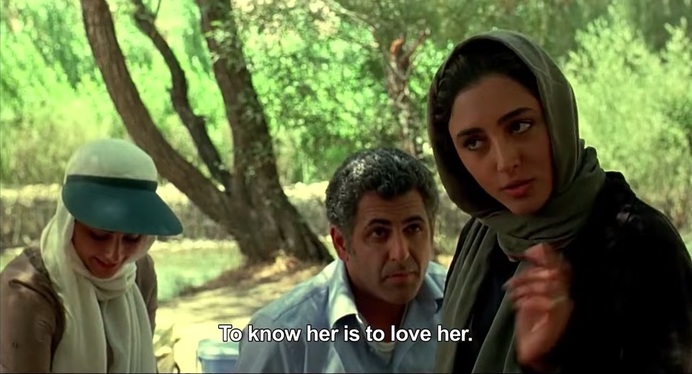
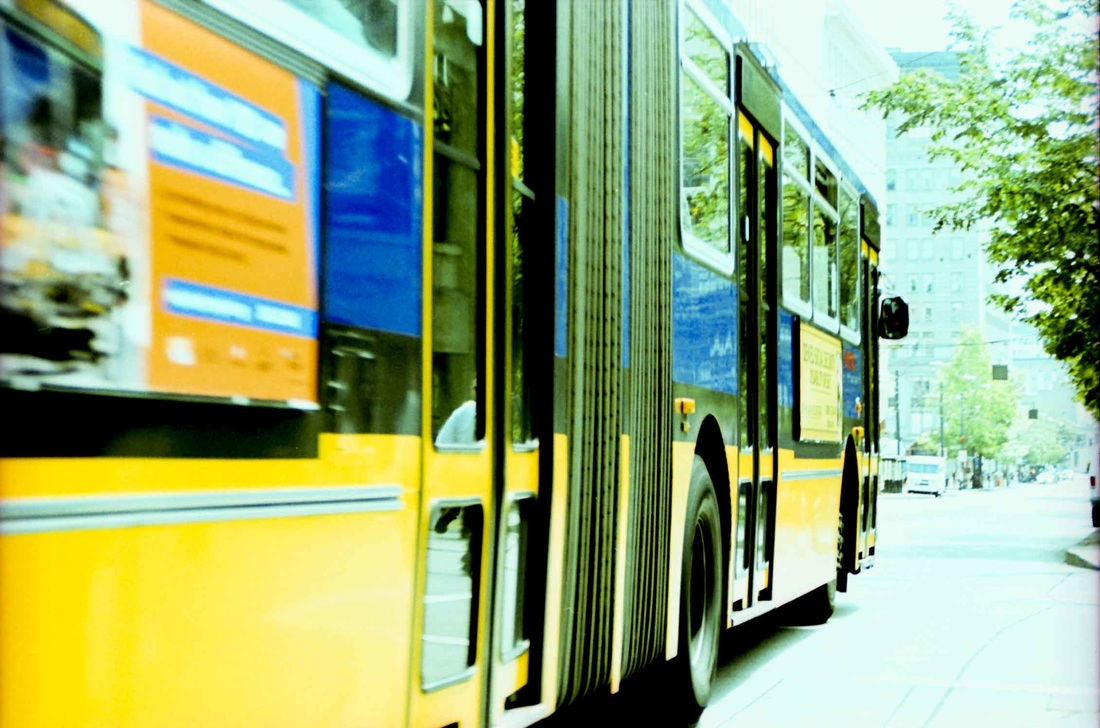
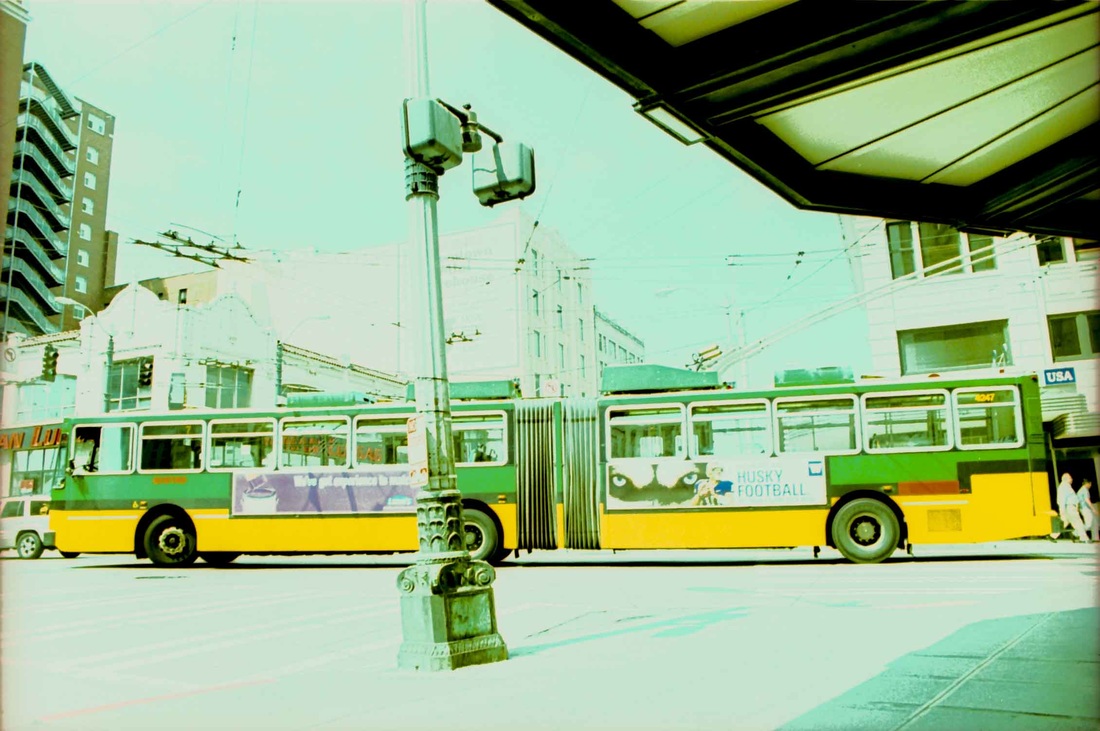
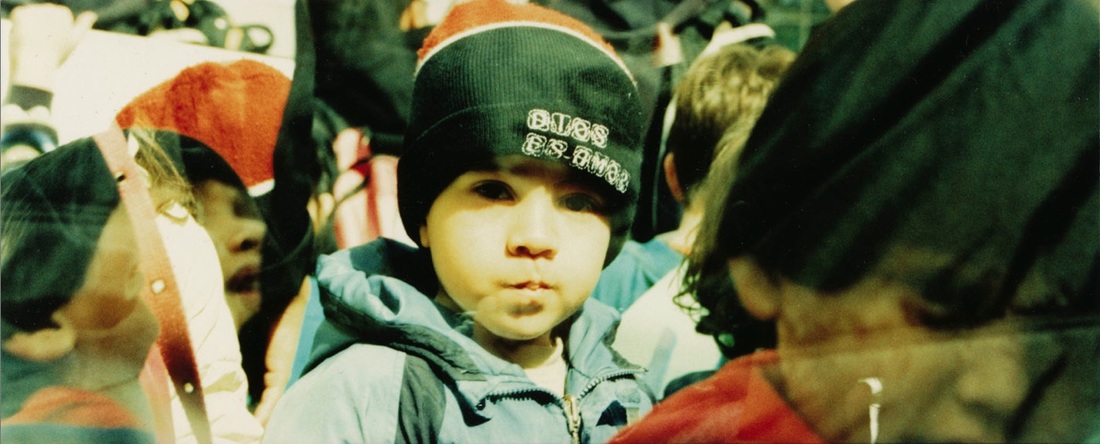
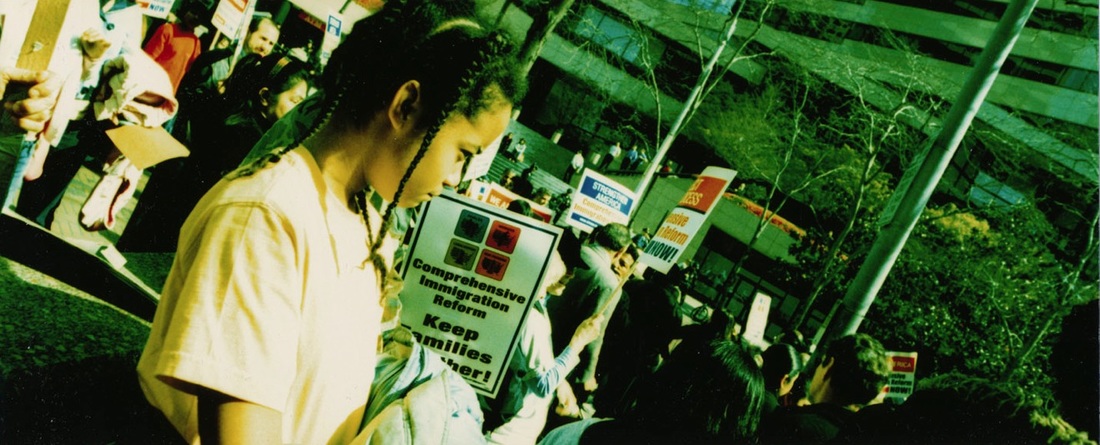
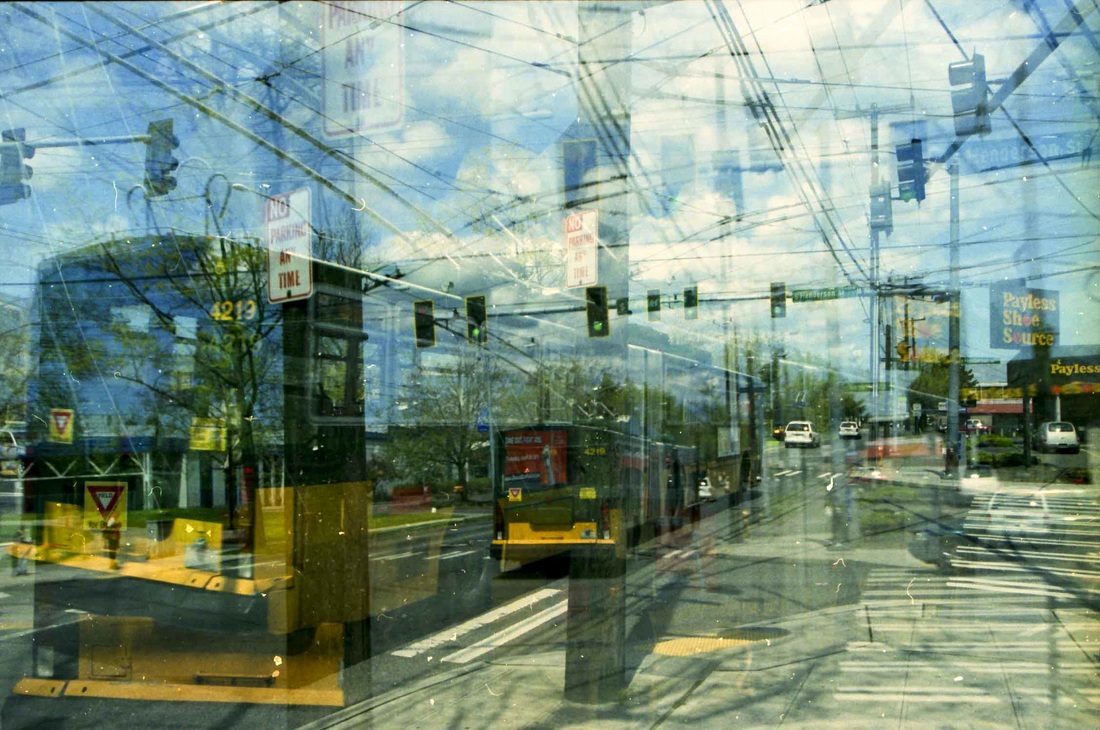
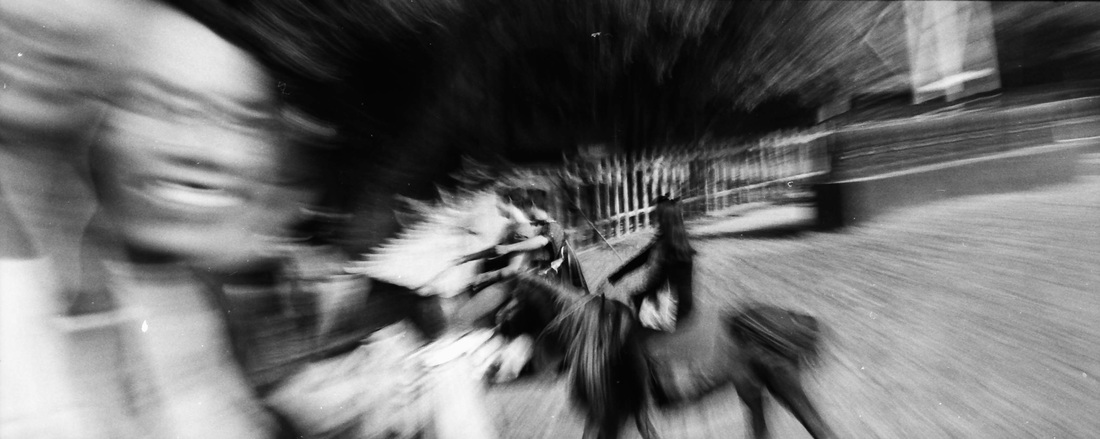
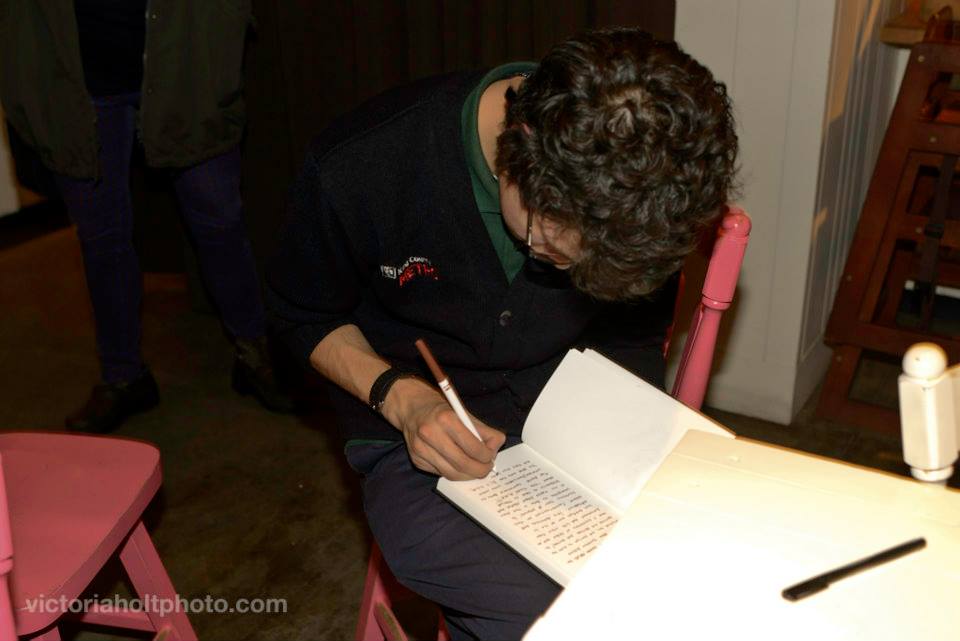
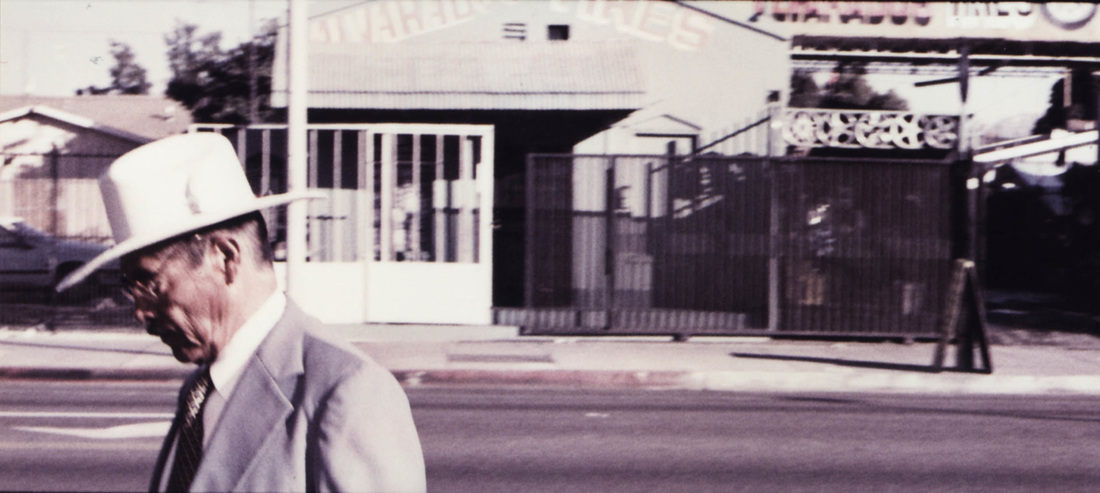
 RSS Feed
RSS Feed
